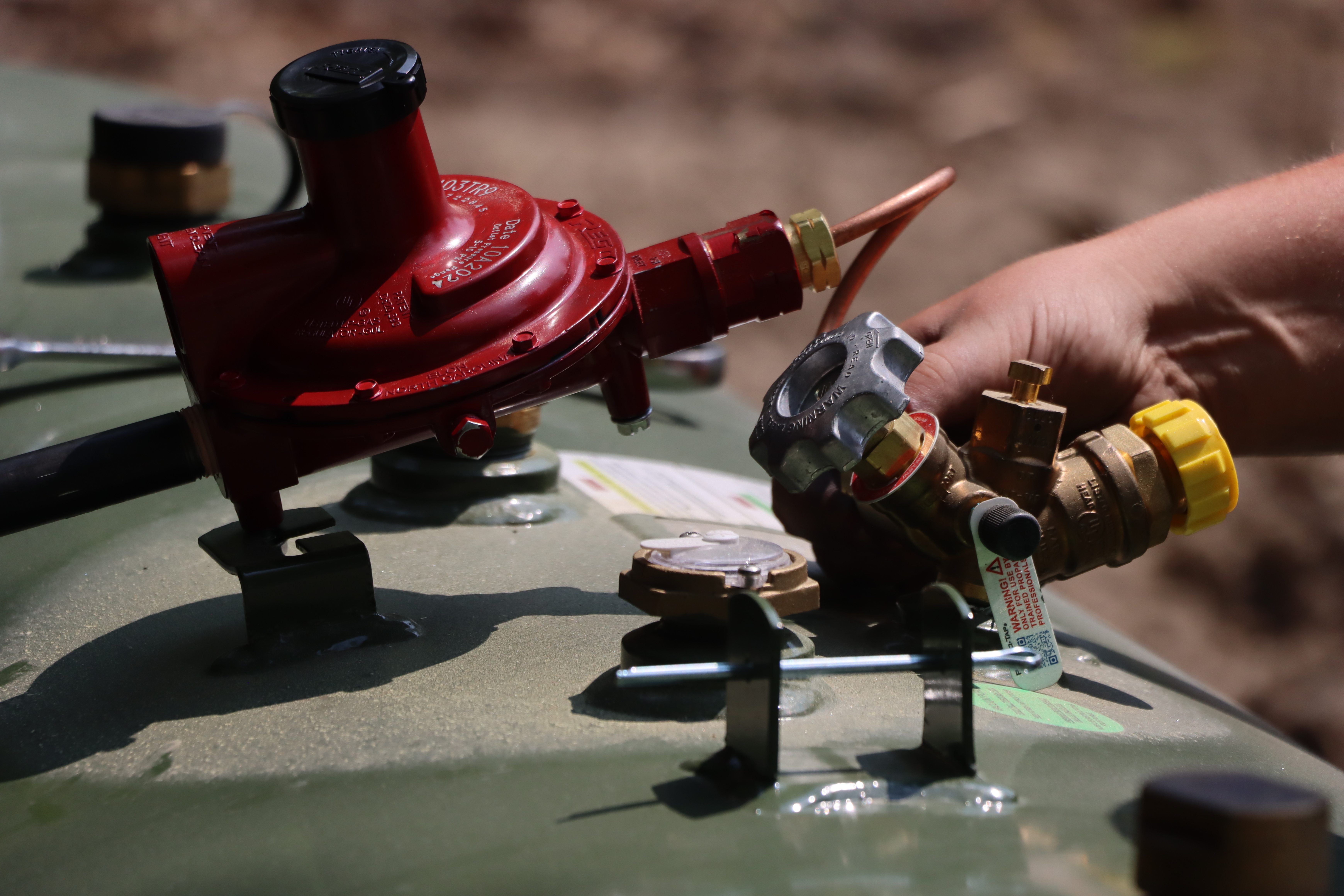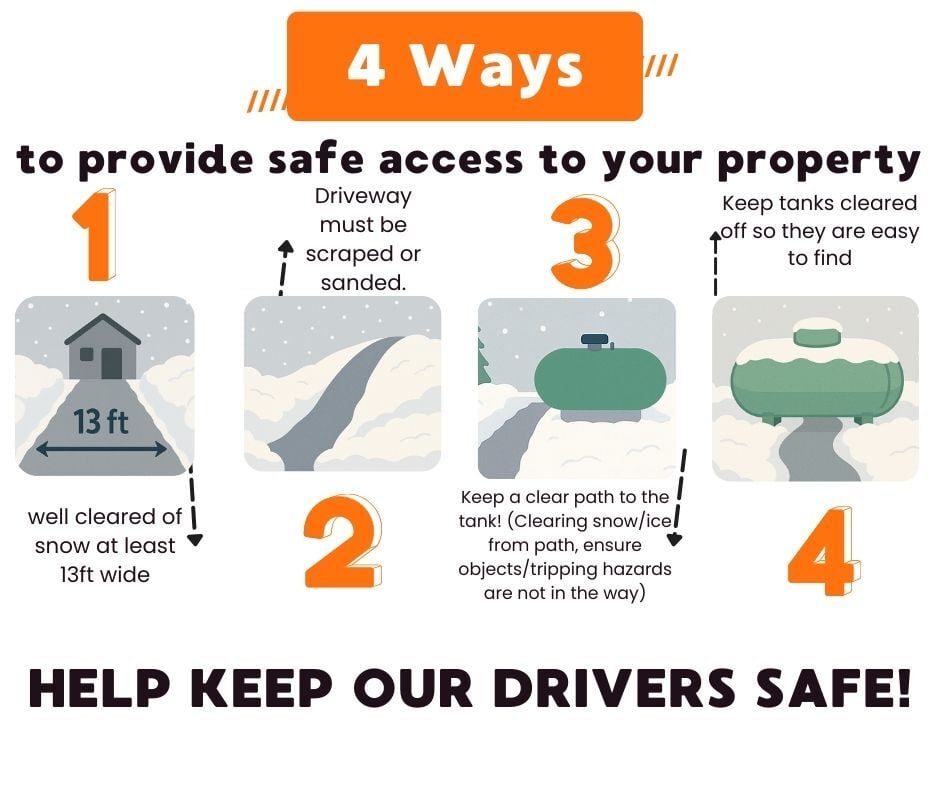Emergency Information
Are You Experiencing a Propane Emergency?
Call 1-888-405-7777 - Budget Propane Ontario’s team of experts are available 24 hours a day, 7 days a week to help. If you are in an emergency situation, please call 911.

Important information on propane safety
We value all of our customers, both residential and commercial. That’s why here at Budget Propane we want to make sure you know how to use propane safely, and understand exactly what to do in the event of an emergency.
Propane is one of the safest alternative fuel options on the market. However, while emergencies are rare, you should know exactly how to react so that you can keep your home and your family safe.
CARBON MONOXIDE
The best way for homeowners to reduce the risk of carbon monoxide poisoning is to have a qualified service technician check appliances and venting systems annually, preferably before the heating season begins. Chimneys, flues, and vents should be free of debris (leaves and animal nests) and snow and ice.

GAS LEAKS
For your safety, propane has an odour added to it so you can detect leaks. The odour added to propane gives off a strong smell of rotten eggs, meaning you should be able to detect a leak fairly fast. Another indication of a gas leak is a hissing noise from a pipe or appliance.

FLOODING
Flooding can increase the risk of propane leaks or damage. Shut off your gas, appliances, and electricity. Close both valves on your hot water tank. Contact your propane supplier about temporary removal of tanks or appliances if flooding is expected, and make sure your tank or cylinder is securely anchored.

WINTER SAFETY
Many of our customers enjoy central Ontario year-round, through all kinds of winter weather, permanent residents and weekend cottage enthusiasts.
Here are some important safety tips to help ensure your family’s comfort during the winter season, and to help our drivers service your location in a safe manner.
Always mark your propane tank location with a visible flag so your delivery driver can find it after heavy snowfall. Make sure your tank has an adequate supply of propane, since road access may be limited during snowstorms. Keep your driveway and the path to your propane tank clear, and regularly remove snow and ice from tanks, outside vents, chimneys, and flues to reduce the risk of frozen pipes and carbon monoxide buildup. Never use outdoor propane appliances such as camp stoves, grills, or portable heaters indoors—even during a power outage—as they can release deadly carbon monoxide (CO) fumes. Likewise, never store or use propane cylinders indoors or in enclosed spaces. If you operate a portable generator, use it safely outside and away from doors, windows, and vents, since using one indoors can cause CO poisoning or fatalities.get our guide
Home & Cottage Owner's Propane Guide
Are you a homeowner ready to switch to propane from oil or electricity? Or are you building a new cottage or rural home? This Free Guide to Propane will help you understand the benefits of using propane as an option for your home or cottage.
Automate your Propane Deliveries
Switching from Oil or Electricity to Propane
Global Warming and Your Household's Carbon Footprint
Propane Heating and Safety
Installation Options & Requirements
